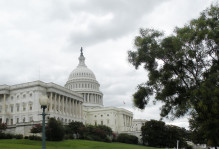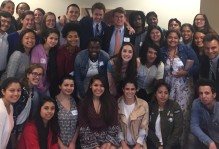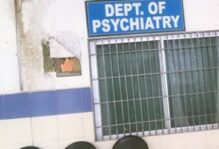Stellenbosch: The “Last Bastion”
The first South African woman I ever met was from Stellenbosch – South Africa’s wine country. During my connecting flight from Jo’burg to Cape Town, she raved about the area’s beauty and got pretty excited when I showed her our itinerary, which included a weekend trip to Stellenbosch. This morning we left Fuller at 9:30 to go wine “tasting.”
Since being in Cape Town, I’ve actually heard a lot about Stellenbosch – mainly from the admittedly biased UCT students. You see, Stellenbosch isn’t just wine country; it’s also a college town. The general consensus is that there probably wouldn’t be a town if it wasn’t for the university (can you really imagine a Blacksburg without Virginia Tech?). The University of Stellenbosch was created by Afrikaners to rival the British-founded UCT. The biggest difference, other than the latter being “the only African university listed among the top 200 in the world” as UCT students will quickly tell you, is that at Stellenbosch everything is taught primarily in Afrikaans – a language some at UCT have referred to as a “dying language.” This difference in teaching has some major cultural, historical, and social implications.
White South African History in a Nutshell (my understanding of it at least):
Dutch settlers (Afrikaners) arrive in Southern Africa, take land from blacks, and institute slavery. The British arrive a few centuries later, engage in several wars with Afrikaners, free the slaves, and take control of Southern Africa. The Afrikaners and British unite against black South Africa, which ultimately results in Apartheid. During Apartheid, Afrikaners gain political and economic leverage for the first time since the British arrived and use newfound power to promote their culture and the Afrikaans language (now Google: Soweto Uprising).
The University of Stellenbosch has essentially been charged with the daunting task of preserving and propagating the Afrikaans language. Unlike the increasingly diverse UCT, Stellenbosch has remained predominantly white since, typically, only Afrikaners and coloureds speak Afrikaans as a first language (that’s <15% of the population; South Africa has eleven official languages). Many blacks view Afrikaans as the language of the oppressor and therefore refuse to learn it (a sentiment that exists even among the 6th and 7th graders we tutor from Khayelitsha). Because of this and several other factors, English has emerged as the country’s dominant, unifying language. In this rapidly globalizing country and world, it seems Stellenbosch may be the last bastion for Afrikaans-speaking South Africa.




No comments.
Comments are currently closed. Comments are closed on all posts older than one year, and for those in our archive.